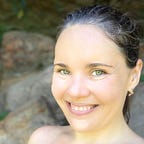How you learned not to be yourself
I’m a natural problem-solver and started Aporé when I realized most people are frustrated with their lives. A common reason is that we aren’t taught to choose careers based on our talents and passions, leading us to not consider our own individual nature in our live decisions.
Aporé empowers people to live more meaningful lives through personal development programs for young people, supporting them in the search for purpose, talents and dreams.
When you think about your childhood and youth you’ll probably remember that you learned a lot about how NOT to be yourself. If you didn’t notice that until now, I’ll help you remember:
· You spent most of your time trying to improve the bad grades instead of focusing on those that you are really great;
· You suffered bullying or bullied somebody just because you were different from each other;
· You expected external approval from parents, teachers and friends;
· You learned that you had to study to have a successful career and that you needed to build a family, have a house, a car and so on to be happy;
· You studied in schools where making mistakes is the worst thing that can happen in your life;
· You were always compared to friends, brothers, sisters, cousins… everyone surrounding your life at that moment.
These are some examples of how people unconsciously educated us to be all equal.
We know that the school system created after the Industrial Revolution (and still adopted nowadays by the majority of schools) has significantly contributed to this “equalization process”. However, we are 7 billion people living in the world right now, each one completely different from the rest of the population.
You may say: “Well, but schools are different now. With the recent Digital Revolution and all the political and economical changes in the past 20 years the education changed too”.
At some level, that’s true. We have new methodologies and ecosystems that are significantly contributing to support children and teenagers in the development of the 21st century skills.
However, we still have a lot of work to do because the majority of the schools are still in the 19th century, with teachers of the 20th to children of the 21st.
I recently had an experience at a private school in Brazil that made me think a lot about the current situation.
I was facilitating our personal development program for young people (Paranauê Program: Lifestyle and Career) and a student told me that she didn’t have any talent. It was not “I don’t know my talents”… it was “I don’t have any”. Why a 16 year old girl thinks that she doesn’t have any talent? What happened in her life until now that made her think she doesn’t have anything special inside her?
Why do we keep teaching people how not to be themselves? Why the school system created in the Industrial Revolution continues to be so important nowadays?
Many incredible people and organizations around the world are working on this issue to put in practice this necessary education reform not only inside schools, but inside families too (I’ll talk more about them later in future stories). However, we need you to be part of this change too.
45% of students have depressive disorder
Federal University of Rio Grande do Sul, Brazil
80% of young people show symptoms of shyness or insecurity
Harvard University
The world will change only if we are able to change the way we live and work today… and to do that we need to make a profound education reform.
My purpose here today is to invite you to think about the education needs and be part of the change with us.
